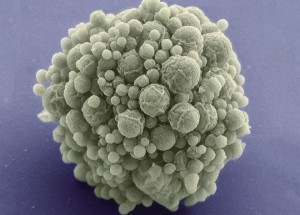Mar 29 2016
Engineering A Minimal Genome
 Craig Venter’s team has crossed another milestone in their quest to engineer artificial life – they have engineered a bacterium that can survive and reproduce with just 473 genes. This is the smallest genome of any free-living thing (so that does not include viruses).
Craig Venter’s team has crossed another milestone in their quest to engineer artificial life – they have engineered a bacterium that can survive and reproduce with just 473 genes. This is the smallest genome of any free-living thing (so that does not include viruses).
The purpose of this is to create a minimal starting point for later genetic engineering. Venter says this minimal bacterium is like a frame onto which specific modules can be placed. He envisions a future in which you can have made-to-order genetically engineered bacteria in which you plug in specific functions.
The Basic Science
This research program is also interesting from a purely basic science perspective. The bacterium used in Venter’s research is Mycoplasma mycoides. The choice of a Mycoplasma bacterium was obvious, as the species in the wild with the smallest number of genes is the related Mycoplasma genitalium, which has 525 genes. The new bacterium has 52 fewer genes.
The process was mostly one of trial and error – removing a gene and seeing what happens. They discovered a few different classes of genes with this process.
Some genes are essential to life. If you remove them, under any circumstance, the bacterium cannot live and reproduce.
Some genes are quasi-essential. If you remove them the bacterium can still live and reproduce, but is much less robust. Venter kept these genes in, so they are part of the 473 remaining genes. That makes sense if you are trying to engineer a useful bug, you don’t want one that is sickly and slow.
Some genes are essential but redundant. These were interesting, because on the first pass it seems like you can remove them without any harm. But when you also remove a companion gene, the bacterium can no longer survive. One of the two genes is needed.
Then, of course, there were genes that could be removed without hampering the cell’s ability to survive and reproduce. These were all removed.
One outcome of this research is the identification of 149 genes that are essential to life but have completely unknown function. These genes can now be targeted for further research to discover what they do.
It is interesting that a cell can have robust function with only 473 genes, some of which are redundant and some of which are only quasi-essential. While this is still complex, it seems manageable that we can learn what each of these genes do and how they interact.
Once we really understand this system it seems likely that we will be able to alter the base system itself, making new versions of the minimal genome. But even if we don’t the minimal genome is a great research tool.
Practical Applications
The practical purpose of this research is to facilitate the genetic engineering of bacteria for industrial use. As Venter says, the minimal genome is like a frame, and now we can plug in specific functions.
Bacteria are tiny biochemical factories. They are already used for a variety of functions, such as manufacturing drugs and chemicals used for other industrial purposes. Used in this way they are extremely cost effective. They reproduce themselves, and carry out their reactions with high efficiency.
Insulin is a great example. For decades after its discovery medical insulin was purified from cattle and pigs. It could be synthesized chemically, but not mass produced. In 1978, however, insulin became the first human protein made with a genetically engineered organism, a modified E. coli bacterium. This made the insulin cheaper and safer.
Bacteria can also be engineered to do useful things like eat plastic, or clean up oil spills or toxic waste. They could possibly be engineered to produce biofuel.
The technology has many potential uses, and if Venter has his way his research will fast track their development.
Conclusion
Life is a very complex machine that has evolved over billions of years. That is a lot of trial and error, not easily reproduced. It makes sense that we should avail ourselves of that massive store of practical knowledge.
The key to that knowledge is genetics. Yes, we have to also understand the biochemical and physiology, but it all starts with the genome. This is why genetic engineering is one of the emerging technologies that is likely to dramatically shape our future. The technology is already is widespread use, but I think we are just scratching the surface of its potential.
Imagine how much we will understand about the genome in a century.
There are some who are scared by the technology, but that is always the case. I think we need to respect the power of the technology, like respecting the power of nuclear technology, but that does not mean we should shy away from using it carefully and responsibly.






